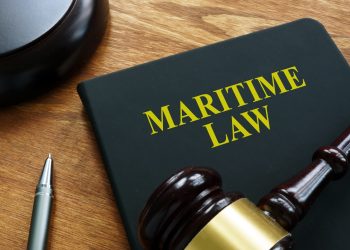An Italian shipping firm based in Genoa, Italy, pleaded guilty to violating the Act to Prevent Pollution from Ships by falsifying required ships’ documents to hide the fact that the ship had illegally discharged oil contaminated waste into the ocean on multiple occasions, announced the Department of Justice Environment and Natural Resources Division, the U.S. Attorney’s Office for the Middle District of Florida, and the U.S. Coast Guard.
Carbofin S.PA. (Carbofin) agreed to plead guilty to three counts of violating the Act to Prevent Pollution from Ships related to the deliberate concealment of vessel pollution from its ship, the M/T Marigola, which called on Tampa on three occasions in 2013 and 2014 with a falsified oil record book. Under the terms of its plea agreement, Carbofin agreed to pay a $2.75 million criminal penalty, $600,000 of which will be designated as community service and used to support the protection and preservation of natural resources located in and adjacent to the Florida National Keys Marine Sanctuary.
Alessandro Messore, who served as the second engineer aboard the M/T Marigola, pleaded guilty to one count of violating the Act to Prevent Pollution from Ships for his role in the offense. A second officer, Carmelo Giano, who served as the ship’s chief engineer and was the person responsible for maintaining the ship’s oil record book, is expected to enter a plea to one count of violating the Act to Prevent Pollution from Ships on Friday.
According to documents filed in this case and statements made in court:
|
Carbofin owns and operates a fleet of commercial liquefied gas vessels, including the M/T Marigola. The investigation began on April 16, 2014, when the vessel called on the Port of Tampa to unload its cargo. U.S. Coast Guard inspectors boarded the ship to conduct a Port State Control examination. During that examination, two crewmembers approached the inspectors and provided them with a cell phone video that showed a black hose connected between two points in the engine room. After reviewing the video and speaking with the crewmembers, the inspectors were able to determine that the hose, known in the maritime industry as a “magic hose,” had been used on multiple occasions to discharge sludge, waste oil, and machinery space bilge water directly into the sea, bypassing the ship’s required pollution prevention equipment. Crewmembers told the inspectors that Giano has directed them on at least two occasions to discharge sludge, waste oil, and bilge water directly into the sea, while in international waters. Even though required to be, none of the magic hose discharges were recorded as required in the ship’s official oil record book maintained by Giano, thereby giving the false and misleading impression that all of the ship’s sludge, waste oil and machinery space bilge water were being properly treated and disposed of. The investigation also revealed that Messore, at the direction of Giano, had on several occasions ordered the ship’s engineering cadet to hook up the magic hose and then personally discharged discharge sludge, waste oil, and machinery space bilge water directly into the sea, under the cover of darkness, while the vessel was in international waters. On ships like the M/T Marigola oily engine room waste known as sludge, waste oil, and bilge water are generated on a regular basis. Sludge is the by-product of the purification of the vessel’s lubrication and fuel oils that are used in electrical generation machinery and the main propulsion engine. Waste oil is the result of oil leakages from various machinery as well as from replacing lubrication oils in the machinery. Bilge water refers to the accumulation in the bilge, which is the bottom-most portion of the engine room, of oil and water that drips and leaks from the machinery. Sludge and waste oil can only be legally disposed of in two ways: (1) incineration in the vessel’s onboard incinerator; or (2) disposal to a barge or other shore-based disposal facility. Bilge water can also be disposed of in only two ways: (1) process through the onboard oil water separator and oil content meter resulting in an overboard discharge of water with no more than 15 parts per million (“ppm”) of oil, or (2) disposal to a barge or other shore-based disposal facility. Bilge water is transferred to, and stored in, the vessel’s bilge water holding tank. All disposals and transfers of sludge, waste oil, or bilge water, whether through incineration, use of the oil water separator, or transfer to a shore-based facility, must be recorded by the person or persons in charge of those operations in the vessel’s oil record book. On the M/T Marigola, chief engineer Giano maintained the oil record book and recorded all entries therein. |
Source: US Department of Justice
In the outbreak, I was straightforward with you propecia before and after has changed my life. It has become much more fun, and now I have to run. Just as it is improbable to sit.






























































